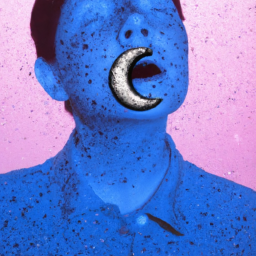Flying dreams often symbolize your desire for freedom, growth, and reaching new heights, reflecting ambitions in business. However, they can also reveal fears of failure or losing control, especially if the flight feels unstable or frightening. Understanding these dreams helps you see whether your subconscious is motivating you to pursue opportunities or warning about potential risks. To uncover the true meaning behind your dreams and how they relate to your goals, keep exploring these symbols further.
Key Takeaways
- Flying dreams symbolize both aspirations for success and fears of failure, reflecting internal conflicts about progress and vulnerability.
- Feelings of liberation in flying dreams indicate confidence and ambition, while anxiety signals doubts and potential setbacks.
- Interpreting these dreams helps assess readiness for risks and personal growth opportunities in business contexts.
- Emotional tone—wonder or fear—reveals subconscious perceptions of control, mastery, and vulnerability in pursuit of goals.
- Recognizing flight symbolism guides entrepreneurs to embrace opportunities or confront fears, balancing ambition with preparedness.

Flying dreams have fascinated people for centuries, often leaving them with a mix of wonder and curiosity. When you find yourself soaring through the sky in a dream, it’s easy to feel a sense of liberation or, sometimes, a twinge of fear. These experiences tap into a deep well of subconscious symbolism, especially around the themes of flight and freedom. The aerial perspective you gain when flying allows you to see the world from above, offering a unique vantage point that isn’t possible in waking life. This perspective can symbolize clarity, insight, or a desire to rise above daily struggles. It’s as if your mind is telling you that there’s a broader view, a bigger picture, just beyond your current circumstances. Flight symbolism, in this context, often reflects your aspirations—your longing to break free from limitations or to attain higher goals.
When you dream of flying, it may represent your desire for freedom—an escape from constraints or responsibilities that weigh you down. You might feel an urge to elevate yourself above mundane worries, seeking a sense of control or mastery over your life. Conversely, those same dreams can evoke fear, especially if your flight is unsteady or if you’re struggling to stay airborne. That fear of falling mirrors real-world anxieties about failure or losing control, especially in business or personal pursuits. If you’re an entrepreneur or professional, these dreams could symbolize your hopes for success or, alternatively, your dread of falling short.
Your subconscious uses the imagery of flight to communicate complex emotions about your ambitions and vulnerabilities. The aerial perspective grants you an expansive view—an opportunity to assess your situation from a distance—yet it also exposes your fragility. The symbolism of flight can be empowering, representing confidence, progress, and the pursuit of dreams. But it can also highlight fears of instability, setbacks, or the risk of failure. These dreams may push you to reflect on whether you’re truly ready to take bold steps or if you’re holding back out of fear. Additionally, understanding the importance of contrast ratio can help you better interpret how well your aspirations are visually expressed and perceived, whether in dreams or in reality. Recognizing dream symbolism can deepen your understanding of subconscious messages related to your goals.
Furthermore, the health benefits of fruit juice varieties remind us that nurturing oneself physically can support emotional resilience, which may influence how you handle fears of failure. Ultimately, whether your flying dreams evoke a sense of freedom or fear depends on how you interpret the experience. They serve as a mirror to your inner desires and anxieties—reminding you that the act of flying, whether metaphorical or literal, is inherently tied to your perception of control, ambition, and vulnerability. Embracing the symbolism of flight can inspire you to pursue your goals with confidence or confront your fears head-on, knowing that the sky’s the limit. Recognizing visual perception and how it influences your emotional responses can give you further insight into your subconscious mind’s messaging.
Frequently Asked Questions
How Do Cultural Differences Influence Flying Dream Interpretations?
You might find that cultural differences profoundly shape your flying dream interpretations. Cultural symbolism influences how you perceive flying, with some cultures viewing it as freedom and others as fear of failure. Interpretive nuances vary, so your personal background can alter the meaning behind your dreams. Recognizing these cultural influences helps you better understand your subconscious, revealing how your cultural context colors your perceptions of flying and its associated emotions.
Can Flying Dreams Predict Upcoming Real-Life Events?
You might wonder if flying dreams predict upcoming events. While dream symbolism often reflects your subconscious messages, there’s no scientific proof that these dreams forecast specific future occurrences. Instead, they reveal your feelings about freedom, control, or fear. Pay attention to your emotions during the dream—these can offer insight into your current life situation, helping you understand yourself better rather than serving as a literal prediction of what’s to come.
Are There Specific Personality Traits Linked to Frequent Flying Dreams?
You might notice that certain personality traits influence how often you experience flying dreams. Traits like openness and adventurousness often link to positive dream symbolism, reflecting a desire for freedom and exploration. Conversely, anxiety or fear of failure may lead to flying dreams with more stressful symbolism. Recognizing these patterns can help you understand your subconscious feelings better and see how your personality traits shape your dream symbolism.
How Do Age and Life Stages Affect Flying Dream Frequency?
Think of flying dreams as childhood imagination taking flight or a sign of career shifts. As you age, their frequency can fluctuate; young children often dream of soaring freely, while adults might experience them more during major life changes. In your 30s and 40s, these dreams may symbolize ambitions or fears of failure, reflecting your evolving mindset. Age and life stages deeply influence how often and why you take to the skies in your dreams.
What Role Does Physical Health Play in Experiencing Flying Dreams?
Your physical health markedly influences flying dreams by impacting your dream stamina and overall well-being. When you maintain good physical wellness, you’re more likely to experience vivid, recurring flying dreams because your body and mind are in sync. Conversely, poor health can diminish dream stamina, making flying dreams less frequent or vivid. Taking care of your physical health can enhance these dreams, potentially revealing feelings of freedom and adventure.
Conclusion
So, as you soar through your dreams, feeling the thrill of freedom or the weight of failure, remember—those flying moments reveal more than you think. Ironically, what feels like liberation often masks hidden fears, and what seems like fear might just be a desire to break free. Whether you’re flying high or falling, your subconscious whispers truths you might not want to hear. After all, sometimes the greatest escape is simply facing what’s holding you down.









